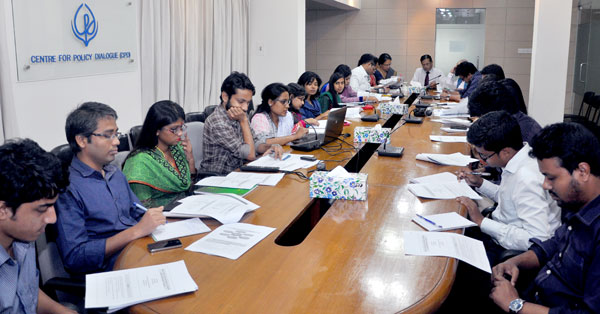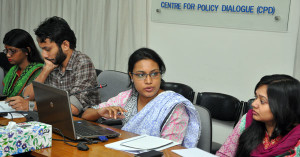Despite residents’ increasing demand for urban services from the urban local government institutions (ULGIs), the ULGIs fail to deliver quality services due to bad governance, poor revenue collection and various organisational incapacities.
Establishing an independent finance commission for the ULGIs would help in dealing with the prevailing inefficiency and enable objective distribution and allocation of finance.
The findings emerged from a study on local governments in Bangladesh presented by CPD Research Associate Ms Umme Shefa Rezbana as part of the Young Scholars Seminar Series (YSSS) on Tuesday, 9 September 2014.
The study titled “Towards an Effective Urban Local Government in Bangladesh: Exploring Different Aspects of Governance” aimed to explore the state of knowledge on the contemporary local government issues focusing on the nature and extent of devolution of power in the context of Bangladesh.
It drew upon primary-level survey result and evidence to support the fact that the ULGIs in Bangladesh continue to have a poor record of being an efficient, accountable and responsive provider of public services at local level with limited extent of fiscal and financial power.
The findings also identified problematic areas such as creation of new ULGIs without proper assessment; ULGIs failing to deliver quality services due to poor revenue collection and capacity; lack of accountability as well as lack of discretion and total absence of peoples’ participation.
In recommendation, the suggested Independent Local Government Finance Commission is expected to focus on a new leadership style for local government, which would oversee auditing, financial management and accountability systems and monitor overall performance on a regular basis.
The presentation was followed by a Q&A session and discussion amongst the members of CPD Research Division.




